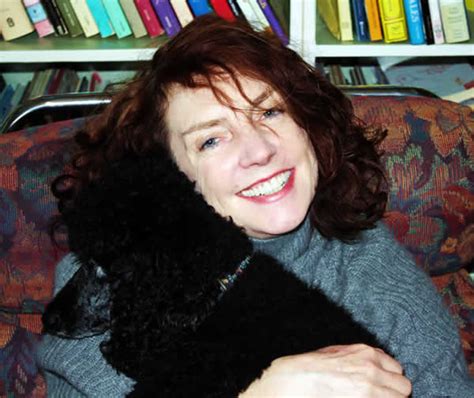A Quote by Patrick M. Byrne
People didn't know where they could trade. When everybody owes each other IOUs that can be in multiple places at once, that's how the system couldn't tell any more who owned what and who owed what to whom. Blockchain could have prevented 2008.
Related Quotes
Because of the men in charge of this system, they've created this caste system for women that gives some of the women in higher places a false sense of authority. You have women who are able to just look at other women and from the color of the clothes they are wearing and they can know how they're supposed to interact with each other. It's a really horrible thing but genius in a way to pit them against each other because once you are, there is no community anymore. There is just people trying to keep each other down.
I was thinking about the universe wanting to be noticed, and how I had to notice it as best I could. I felt that I owed a debt to the universe that only my attention could repay, and also that I owed a debt to everybody who didn’t get to be a person anymore and everyone who hadn’t gotten to be a person yet.
I'll think about something else. I'll just sit quietly. If I could sit still. If I could sit still, maybe I could read. Oh, all the books are about people who love each other, truly and sweetly. What do they want to write about that for? Don't they know it isn't true? Don't they know it's a lie, it's a God-damned lie? What do they have to tell about that for, when they know how it hurts?
As we continued to talk, going through the motions of getting to know each other, I realized that we already did know each other, as well as any two people could. We’d known each other for years, in the most intimate way possible. We’d connected on a purely mental level. I understood her, trusted her, and loved her as a dear friend. None of that had changed, or could be changed by anything as inconsequential as her gender, or skin color, or sexual orientation.
I could not understand how people could not like something as beautiful as the aerodrome. But I had lately become convinced that in general people were pretty boring. They liked to moan for hours on end about how hard it was to make ends meet, about the money they owed, the price of food, and other similar worries, but the minute some more brilliant or attractive subject come up, they were struck deaf.
Knowledge is praised and desired by multitudes whom her charms could never rouse from the couch of sloth; whom the faintest invitation of pleasure draws away from their studies; to whom any other method of wearing the day is more eligible than the use of books, and who are more easily engaged by any conversation than such as may rectify their notions or enlarge their comprehension.
I will tell you that Hillary [Clinton] will tell you to go to her website and read all about how to defeat ISIS, which she could have defeated by never having it, you know, get going in the first place. Right now, it's getting tougher and tougher to defeat them, because they're in more and more places, more and more states, more and more nations.
The handkerchief dabbed at my forehead. 'Ouch! You'll have a fine-looking bruise tomorrow.' 'Then you'll be able to distinguish me from Rose.' The handkerchief paused. 'I could tell you apart from the beginning. You're quite different to each other, you know.' Perhaps he could tell, in the obvious ways. The odd one was Rose; the other odd one was Briony.
In any case, suffice it to say I enjoyed hearing about faraway places. I had stocked up a whole store of these places, like a bear getting ready for hibernation. I'd close my eyes, and streets would materialize, rows of houses take shape. I could hear people's voices, feel the gentle, steady rhythm of their lives, those people so distant, whom I'd probably never know.



































